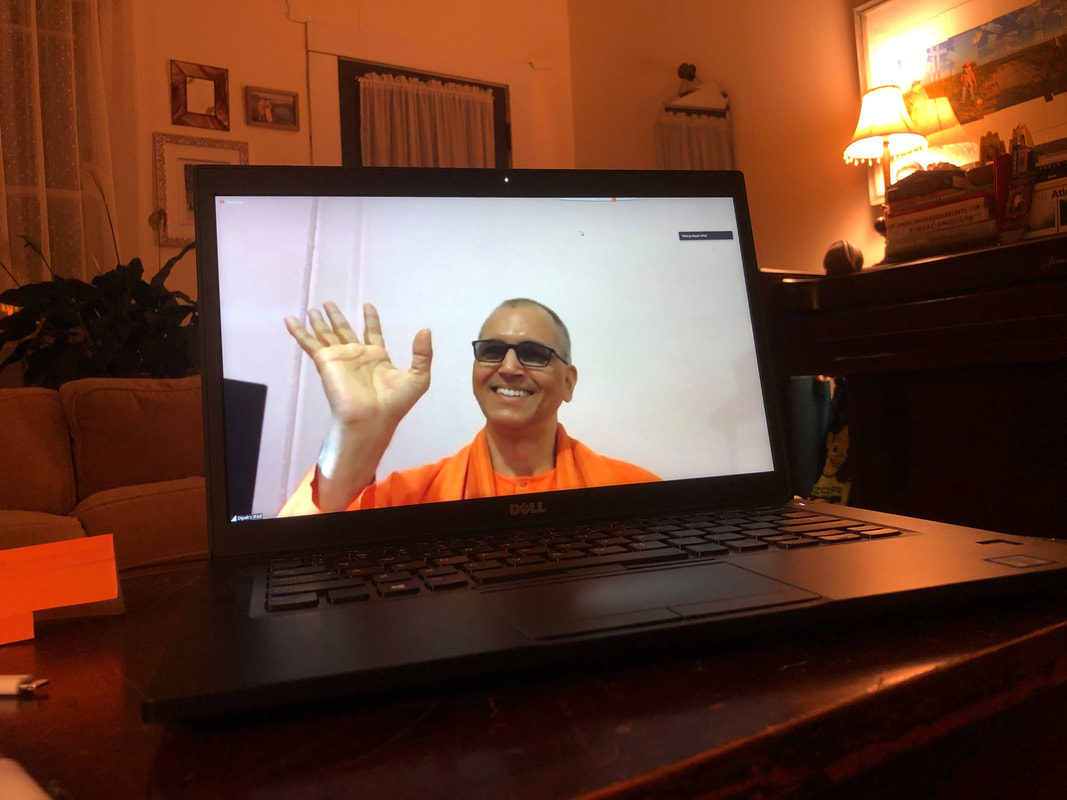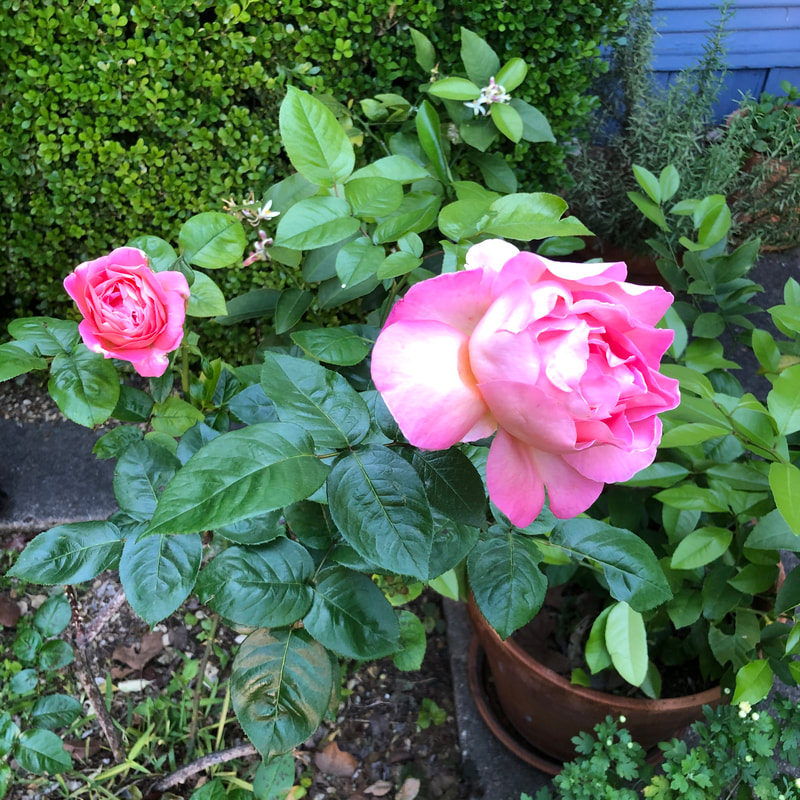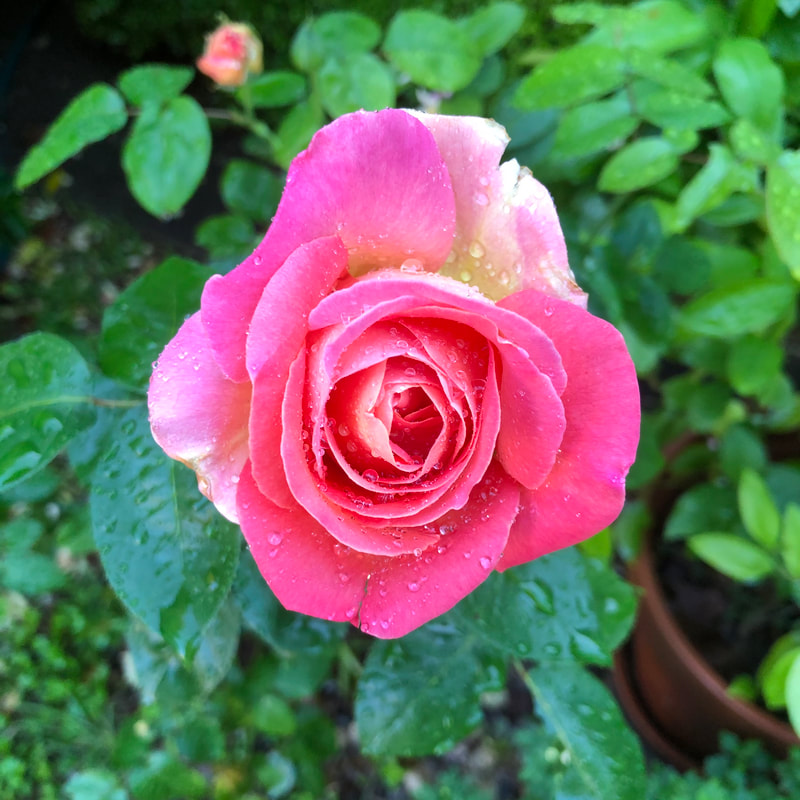|
I attended a Zoom talk last night with Swami Shuddhidananda, a scholar of Vendanta and long-time swami in the Order of Ramakrishna. His topic was the Katha Upanishad and while I’m no swami-scholar I did a get some mighty potent take-away's. I have deep respect for the swami-scholars (the nuns too!) who devote their entire lives to keeping such potent, relevant, deeply spiritual conversations alive in the contemporary world. And in languages like Sanskrit that deeply and inherently communicate spiritual truths as the core function of the language.
The Upanishads are some of the oldest, most profound spiritual texts on the planet. They come from the distilled notes of nameless students taken from enlightened talks that sages gave while sitting under trees in forests to those who were interested in such topics. Let’s just say the romantic, devoted student archetype in me resonates at a level I can't really explain in words. I won’t break apart the Katha Upanishad for you here (although I’d encourage you to read The Upanishads – I've read them and they’re surprisingly digestible!) and instead I’ll share the biggest a-ha’s of the experience. The Katha Upanishad revolves around a boy (Swami says between 8-10 years old) named Nachiketa who confronts his father about a few issues and in the end the boy actually embraces confronting death itself. There’s a lot to unpack with the Katha Upanishad and again, I won’t do it here because I won’t do it justice. The point is – looking death in the eyes with courage requires a certain positive outlook and faith. And that was one of the main take away's for me – that positive-outlook and faith. The Sanskrit word for this is shraddha. And what is it exactly? Shraddha means you have faith that you will successfully navigate whatever comes your way. You know there’s a bigger, more expansive version of things that is the real Truth of who and what we are. And if you don’t have personal knowledge of these types of expansive and mysterious experiences, you know and trust people who have and you want to learn from them and with them. Shraddha is a big ole deal. It's fundamental to the spiritual journey. Because without shraddha what do we become but a bundle of grievances and complaints? Indeed, without shraddha, we create optimal conditions to succumb to rampant skepticism and cynicism. (Sound familiar? Facebook, anyone?) Shraddha is a potent starting point, something to pivot and frame your experience with because with shraddha you are able to manifest viveka, or discernment, for what is permanent and what is transient; for what is real and what is unreal. And this discernment is vital to taking action in the world. The boy in the Katha Upanishad is able to take action to call his father out and face death so elegantly because he’s gripped by shraddha, not skepticism and cynicism. Shraddha. It’s fundamental to the path, any Path. And when asked by a fellow Zoom attendee after the formal swami-talk about what we should be doing during “this time” – Swami's answer was startling simple: to inquire about supreme reality and to use our God given gift of being human to ask really good questions. We’re always on the run and now we’re being required to stay home. To lay low. To do the self-inquiry that comes with extreme boredom and frustration. To look death in the eyes and know that there’s more beyond death. Indeed, what are we even running from? Phew. In addition, Swami suggested keeping the conversations alive in groups where shraddha is established and continuing to establish itself. That is, one’s sangha, or community of other students who question and learn together. The way I see it, it could be a church study group, could be a meditation group, could be on ongoing class you attend. Speaking of! --> A free 7-week Vedanta primer course is available via Zoom starting next week with some pretty incredible swamis and nuns but the deadline to apply is April 17. (Full disclosure: there’s a request to commit to the whole series, FYI.) Two of the presenting swamis have given salon talks in my living room and if you’ve attended one of them, they should look fairly familiar to you. And why Vendanta you might ask? Well, because it’s one of those spiritual lineages that really concerns itself with the science of self-study and realization, or bhramavidya. And also because studying Vedanta is compatible with literally any religion on the planet. That’s because it’s not really a religion but a sophisticated and elegant understanding of self that just rings true when you are exposed to it. And because the texts in Vedanta (the Vedas) are ancient and have stood the test of time. At least that’s my experience of studying it. And besides, the company is astonishingly cool – Joseph Campbell, Aldous Huxley, Christopher Isherwood, Henry Miller, Huston Smith, just to name a few. All white men (I know, I know!) and yet each indisputably brilliant. And that’s me only scratching the surface of well-known and respected writers, thinkers and scholars who have tread this path. In fact, I have performed some first hand explorations on one in particular - L. Frank Baum, the author of Oz books. In the end, my favorite part of Swami’s talk was his direct, clear advice to the Zoom attendee for “these times” – to make best use of our time to inquire about supreme reality, ask big questions and act creatively. Which I love! So much! Because that would have been Swami's pre-coronavirus answer too, I’m almost 100% sure of it. His parting words to all of us were something like be infected by the good spiritual infection of shraddha! May it be so.
0 Comments
I had a dream the other night about Sister Coronavirus.
After much head scratching and befuddlement by scientists, it turned out that the only cure for the virus was to sing! That somehow the act of singing would vibrate the chest cavity in just the right way to open up the deep lung passages to prevent fibrosis. In fact, as it turned out, the simple act of singing was literally the only way to ungrip the deep lung tissue to move through the illness – better than any drug, better than any ventilator, better that any piece of equipment available. Sick people wanting to live were encouraged to sing their way through it. People who had COVID19 and even those who didn’t have it started to self-organize and go around to neighborhoods and hospitals in “street choirs” to encourage singing; to help absorb people’s self-consciousness about their singing voice. Because the other amazing detail was that singing turned out to be the best preventative for the virus too! As the dream wore on, these rogue street choirs moved from one hospital room to the next, singing and singing and singing. Beatles songs worked well for many people, specifically All You Need is Love. Others resonated better with show tunes. But hymns, it turned out, were a particular favorite and had uncanny potency to heal. Most especially effective were the simple classics from childhood memories. They were found to be the most uplifting according to the researchers. And This Little Light of Mine, it turned out, was particularly effective. More than the Beatles. More than show tunes. As researchers continued to study how singing both prevented the virus and cured the virus, the simple act of singing This Little Light of Mine was actually put into hospital protocols for ongoing treatment. And some people resisted – NO YOU CAN’T MAKE ME SING AND I’M NOT GUNNA’ – they would say, digging their heels in. I WILL NOT BE HAPPY AND YOU CAN’T MAKE ME! I WILL NOT SHINE ANY LIGHT! And you know what, the vast majority of these people died because their lungs got all hard and gripped up and it was really quite sad! Weird dream, right? Either way, singing seems like a good idea these days. Perk up friends! A new day is dawning on humanity! Happy Easter! This little light of mine I’m gonna let it shine! This little light of mine I’m gonna let it shine! This little light of mine! I’m gonna’ let is shine, let it shine, let it shine, let it shine! May it be so. |
DescriptionPeriodic updates from Aurah in the Field. Adept Archives
June 2020
|
Navigation |
© COPYRIGHT 2016-2021. ALL RIGHTS RESERVED.
|



 RSS Feed
RSS Feed